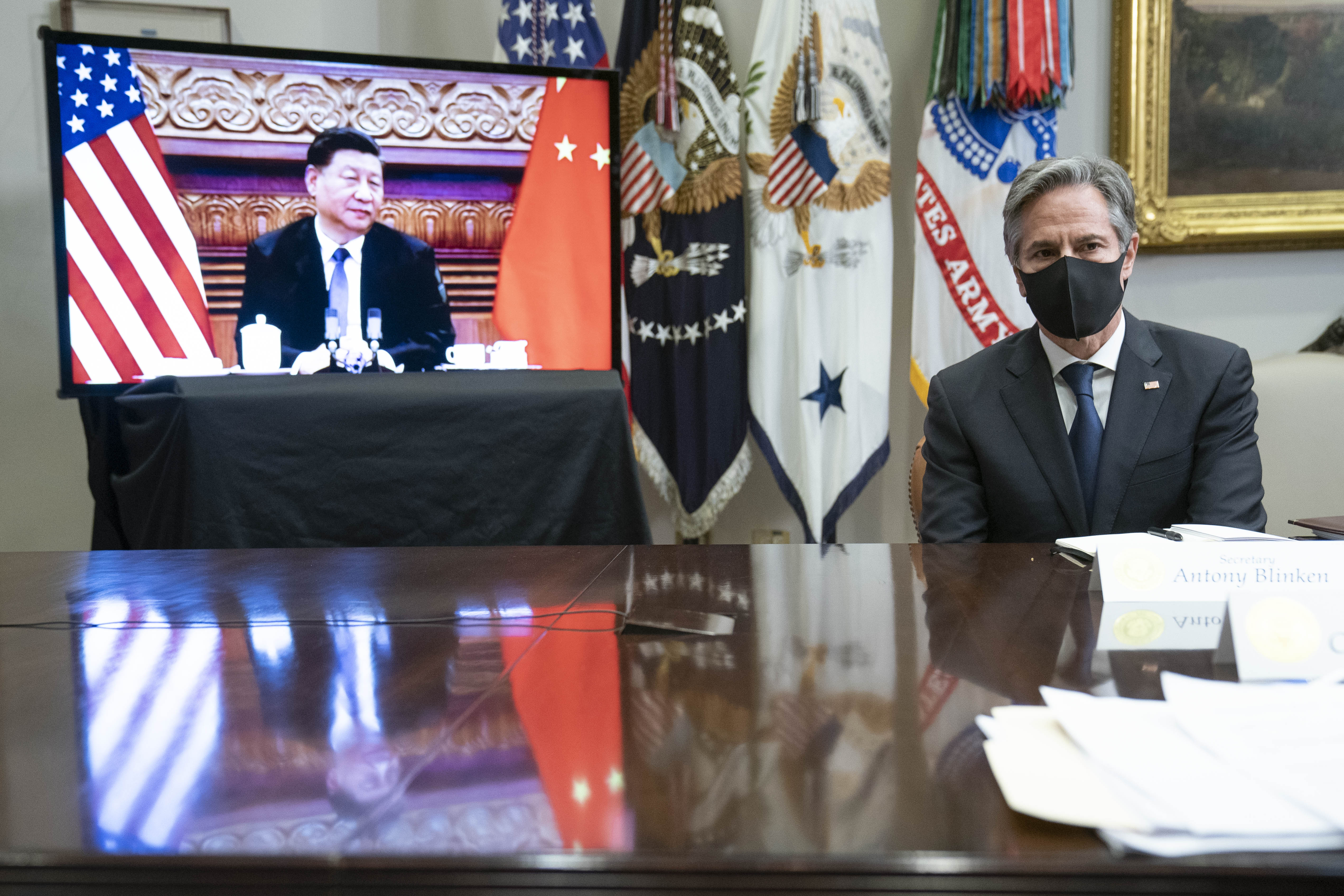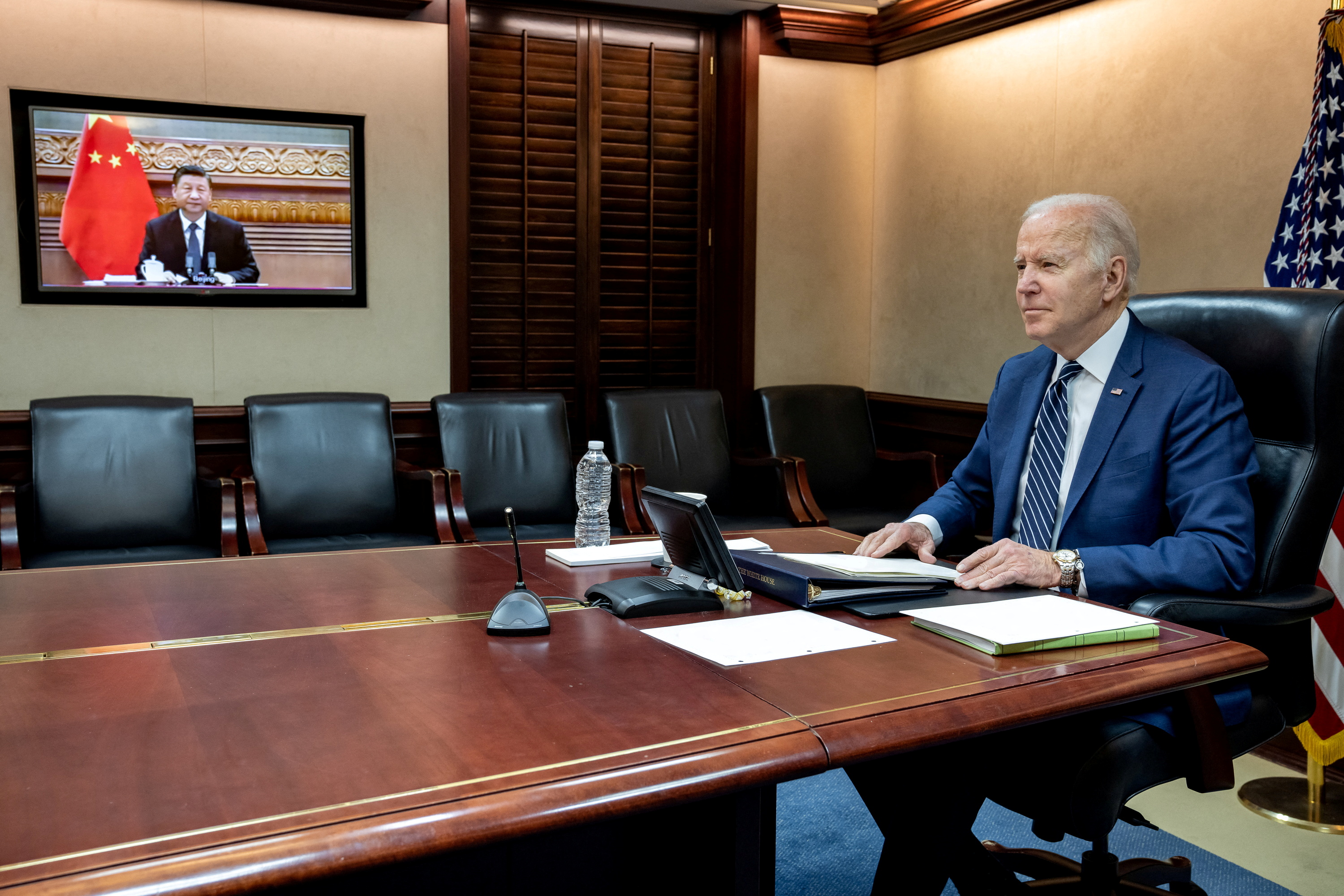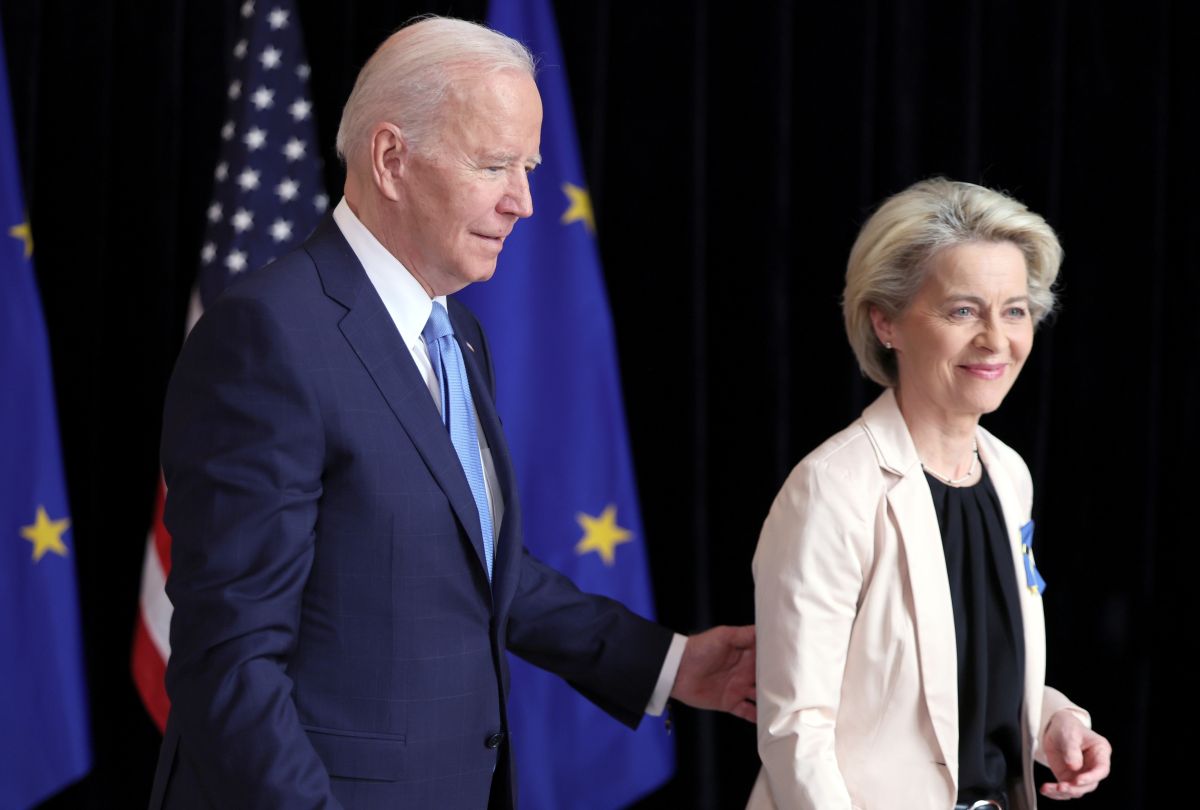Assumptions of U.S. Policy Towards China-Defence of the International Order Rather than Regime Change
On 26 May, Secretary of State Antony Blinken presented the assumptions of U.S. policy towards China. He described that country’s actions, above all its ambitions and real possibilities of changing the international order, as the main, long-term challenge to the global order. The way to deal with the challenges China presents, he argued, is to strengthen the U.S. potential, especially its competitiveness and innovation, along with cooperation with allies and partners primarily from Europe and Asia to effectively compete with China.
 Sarah Silbiger - Pool via CNP/Zuma Press/Forum
Sarah Silbiger - Pool via CNP/Zuma Press/Forum
What were the main theses of Blinken’s speech?
According to the Blinken, China is the most important, long-term challenge to the rule-based international order, which has been the guarantor of global development for years. China’s support for Russia’s aggression against Ukraine is a warning to the countries of the Indo-Pacific region. Like Russia in Europe, China in Asia has the ambition to build spheres of influence. According to the secretary of state, China is currently the only country that wants and has the necessary military, economic, technological, and diplomatic potential to change the global order. This potential is largely the result of the efforts of Chinese society, which Blinken said the U.S. respects. The challenge for the U.S. therefore is with the Chinese authorities and their policies, not with the public, he said. The intention of the United States, Blinken argued, is not to block China’s socio-economic development or to change its government, but to compete in, among others, military development and technological and other innovation to prevent China from using its advantages in these areas against the international community.
What will change in U.S. policy in the rivalry with China?
The most important element of U.S. policy, Blinken said, will be investments in developing potential, including economic, by reducing interdependence with China and modernising infrastructure. Cooperation with “sovereign, equal partners” is to be of key importance, he noted. To not put pressure on these partners, Blinken said the Biden administration will not force a choice between cooperation with the United States or China. More important than before will be U.S. multilateral diplomacy through the G20, the G7, but above all, through such initiatives in the Indo-Pacific and the Quad, AUKUS, or the new economic project (IPEF) announced during Biden’s recent visit to Asia. The U.S. has no interest in “decoupling” China from the world economy; however, the demand for reciprocity in economic relations with China will most likely require some U.S. sanctions to remain in place despite inflationary pressure.
What was China’s reaction to the speech?
On 27 May, the day after Blinken’s speech, the spokesman for the Chinese Ministry of Foreign Affairs emphasised that China is not a threat, but a defender of the “international order” based on the UN Charter, and discounted the “rule-based world order” as serving the interests of the U.S. and a select few other countries. He also said that the U.S. should decide whether they want confrontation or dialogue with China. On 28 May, in a separate statement, Foreign Minister Wang Yi stressed the need for China to cooperate with the U.S., but rejected what he called U.S. global hegemony. At the same time, via Twitter, another spokesman for the Chinese Ministry of Foreign Affairs accused the U.S. of trying to destabilise the world. She also advised the United States to resolve its own internal problems, citing mass shootings, which was a reference to the recent attack in a school in Texas.
Will the U.S. commitment to deterring Russia in Europe change?
The high priority of the rivalry with China means the U.S. will continue to increase its activity in the Indo-Pacific, and the need to split American resources in relation to involvement in Europe. However, the U.S. support for Ukraine in its fight against Russian aggression and the strengthening of NATO’s Eastern Flank are not identified by the Biden administration as an element of the rivalry with China. It was apparent from Blinken's speech that cooperation in Europe must be an element of the broad process of supporting the international order to which both Russia and China (and their partners) pose a threat. This concept is intended to reassure allies and partners about U.S. involvement in both important parts of the world.
What opportunities for cooperation with the EU are offered by the U.S. policy towards China?
Blinken listed transatlantic cooperation as one of the pillars of American diplomacy towards China, confirmed by, among others, the same critical stance of the EU and the U.S. on China’s support for the Russian aggression in Ukraine. The secretary of state emphasised the international community of the EU and the U.S. in the face of economic and political threats from China. In his opinion, the efforts of both sides to settle difficult issues in transatlantic relations have a positive dimension, as indicated by the recently reached agreement between the EU and the U.S. on data privacy, subsidies in the aviation industry, and in other areas. He emphasised the cooperation within the Trade and Technology Council, including in the context of reducing interdependence with China, diversification of supply chains, export controls or subsidies for Chinese enterprises, such as in the steel sector. The possibility of transatlantic cooperation also concerns the fight against climate change, which Blinken pointed out—as the EU often does—that it is one of the few areas of cooperation with China.



_sm.jpg)

